Install this application on your home screen for quick and easy access when you’re on the go.
Just tap then “Add to Home Screen”
The Cora Maas Award was presented for the best course at the ECPR Winter School or Summer School in Methods and Techniques and is endowed with €500. The awarded was presented annually from 2010 to 2013.
 About Cora Maas
About Cora MaasCora Maas, who died in February 2010, was a most outstanding pedagogue. She taught the ‘multilevel analysis’ course at the ECPR Methods School in 2007 and 2008, before her health forced her to stop. She was a great inspiration for the junior researchers who followed her courses and in memory of this ECPR dedicated an award in her name to encourage junior researchers to aim for excellence in both methodology and pedagogy.
All Instructors at our Methods School are eligible for the Cora Maas Award.
Instructors are evaluated by a jury, who consider, with equal weighting:
All participants and Instructors will be contacted to provide these assessments after the conclusion of the School. This will also provide an opportunity for Instructors to nominate their Teaching Assistant/s for the Dirk Berg-Schlosser Award.
The jury for the Cora Maas Award is composed of the Chair of the Training Sub-Committee (TSC) of ECPR's Executive Committee, the Methods School Academic Convenors, and a representative from the local host institution. In the case that the representative of the local host is an Instructor, they will be asked to stand down from the jury, and will be replaced by another member of the TSC.
See more information about the Methods School.
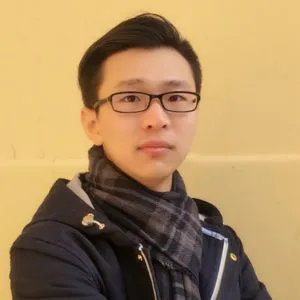
Chendi Wang is an Assistant Professor of Political Science at the Department of Political Science and Public Administration, VU Amsterdam. He works in comparative politics, political behaviour, political economy and political methodology. Chendi's current substantive research focuses on the politics of macroeconomic policies, party & electoral politics, and EU politics. Methodologically, his research agenda revolves around Bayesian and nonparametric statistics, measurement and time series analysis. In his own words: 'I am deeply honoured and humbled to receive the 2023 Cora Maas Award. Teaching the Bayesian course has been a passion of mine, and this recognition reaffirms the importance of fostering a deep understanding of methodologies. The Bayesian approach is a powerful tool in political research, yet it is often underutilised.'
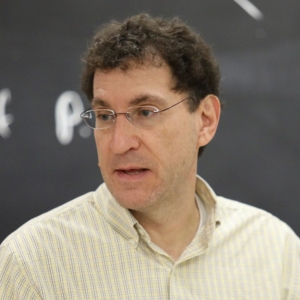
Frederic Charles Schaffer is a Professor in the Critical Political Studies division of the Political Science Department at the University of Massachusetts Amherst. His research examines the meaning and practice of democracy across cultures and back in time. His methodological writings develop language-centred approaches to foundational research tasks like comparing, interviewing, and working with concepts. He is the past Chair of both the Interpretive Methodologies and Methods Group of the American Political Science Association (APSA) and the Committee on Concepts and Methods of the International Political Science Association (IPSA). In his own words: 'I’m honoured to receive this award. It’s especially meaningful to me because Working with Concepts is a course I’m passionate about teaching. Concepts are an essential but too-often overlooked dimension of research design and I love helping course participants cultivate their conceptual skills and develop robust conceptual frameworks for their projects.'
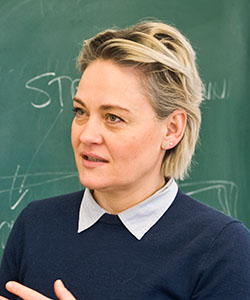
Marie Østergaard Møller is Associate Professor at the Department of Politics and Society, Aalborg University, Denmark. Her research interests include social and political categories, categorization, frontline agency, vignette method, and interpretive methods. Marie works with research and development within systematic qualitative analysis, and categorization theory, partly as a university-employed researcher partly as a freelancer and founder of ProPublic. In her own words: "Teaching at the ECPR School in Methods and Techniques has always felt as an award. The school attracts great, ambitious, and engaged students, who always go an extra mile to learn new methods and difficult methodology. I am very honored to be awarded the Cora Maas prize 2021 for teaching the course in interpretive methods."
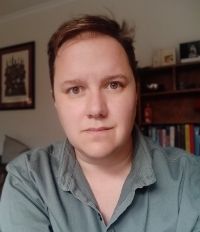
Cai is an Associate Professor in International Relations, and the Course Director for the Graduate Certificate of Humanitarian Leadership, at Deakin University, Australia. Her research focuses on community and individual experiences of insecurity in the former Soviet Union, with a particular focus on sexual orientation and gender identity and expression. Cai has been a Methods School instructor since 2017, teaching Ethnographic Field Research Methods. She joined our Methods School team to strengthen its interpretivist base, and has since been advising the Academic Convenors on all matters interpretive research. Through the years, Cai continues to demonstrate her excellent pedagogy that is immediately and consistently apparent from participant feedback. In her recent evaluation, a participant noted that Cai's course provided a 'great introduction to ethnography' and 'opened a new world', helping 'organise and put words on many ideas'. Cai, through her extensive experience with online teaching and commitment to the highest pedagogical standards, was instrumental in moving our Methods School into the virtual environment. Reflecting on Cai's online class, one of the students remarked that she is 'one of the best' teachers they ever had, and that her 'presentations and videos were very well structured', while the 'interaction within the group was also very enjoyable'.

Robert Adcock is a Senior Professorial Lecturer in the School of International Service at American University. His interests focus on the politics and sociology of knowledge, the transatlantic history of the social sciences and their relationship to liberalism, and the philosophy and methods of the social sciences. He is the author of Liberalism and the Emergence of American Political Science: A Transatlantic Tale (Oxford UP, 2014), was the co-editor of Modern Political Science: Anglo-American Exchanges since 1880 (Princeton UP, 2007), and edited the newsletter of the Qualitative and Multi-Method Research organized section of the American Political Science Association from 2011 to 2014.
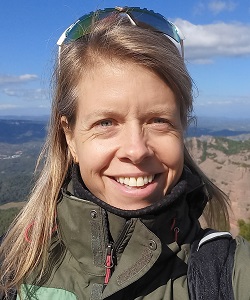
Marie-Hélène teaches qualitative research methods at the Open University of Catalonia (UOC) and is a freelance methodologist in qualitative data analysis. She was educated in Quebec, Beirut and Oxford where she read social work. She is an NVivo Certified Platinum Trainer by QSR International and is part of the NVivo Academy training team that teaches the NVivo online courses. Marie-Hélène is a sought-after methodologist, having taught seminars and courses in qualitative data analysis in more than fifty universities and research centres worldwide, including universities in Qatar and Iran. Since 2009, she teaches the introductory and advanced courses in qualitative data analysis at the ECPR Winter and Summer School and similar courses at the IPSA-NUS Summer School in Singapore. Her methodological interests span from advances in qualitative data analysis, qualitative systematic reviews, postcolonial epistemology and participatory methodologies. Her work was published in the Journal of Mixed Methods Research, Nursing Inquiry and Youth & Society.
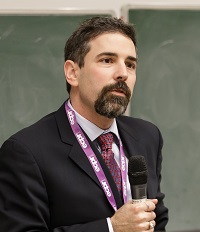
Patrick is Professor of International Studies, and the Director of the AU Honors Program, at the American University in Washington, DC. He joined the Method School in 2012, where he taught a week-long course on the philosophy of science entitled Knowing and the Known. He has since taught a week-long course in Relational Social Science in the Summer School, and transitioned his philosophy of science class into a very popular free morning course that got participants in their seats at 8am every morning for a week to hear about Popper and Wittgenstein, among others. One anecdote that sums up his commitment to teaching excellence was an activity Patrick arranged during his course on the philosophy of science. When the Winter School was hosted by the University of Vienna, he would arrange a site visit to the Wittgenstein Haus – a building that the philosopher himself took part in designing. As the Wittgenstein Haus is now owned by the Bulgarian embassy, Patrick would have to negotiate access to the building to allow his course participants the opportunity to see how Wittgenstein’s thinking permeates certain architectural elements of the building. Patrick’s teaching excellence has manifested itself in consistently excellent participant evaluations for his courses over many years. Anyone who has had the privilege to hear Patrick teach can witness his intense devotion and commitment to teaching excellence. A truly dedicated pedagogue.
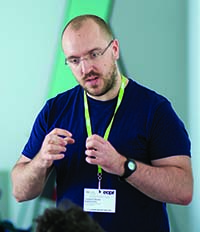
Manu began his long association with the ECPR Methods School as Teaching Assistant (TA) on the Winter School multilevel modelling course in 2014. After that, he was invited back as a TA at every single Summer and Winter School, until graduating to Instructor at the 2017 Winter School, where he has since taught an Introduction to Regression course, and a course on LaTeX. Teaching his own course, Manu 'truly impressed' his students, one of whom remarked that they had 'rarely seen such a sincere, wholehearted and respectful teacher during my university career! [...] Manu also repeatedly told us that a good statistician should always remain humble.' (Excellent advice!) Methods School students have appreciated Manu's 'sense of humour' and his ability 'to transmit very complex concepts in an easy and understandable way to a very wide audience that had [broad varieties of] interests and quite different level of competences.' They also felt he does an excellent job 'encourag[ing] further interest in the Topic'. Year after year, Manu's courses have consistently been evaluated the highest among our Methods School offer. Cora Maas, who was also the ECPR Methods School's best-evaluated multilevel modelling course instructor before her untimely passing, would no doubt be proud to see the award that bears her name go to a fellow multilevel modelling expert and educator.
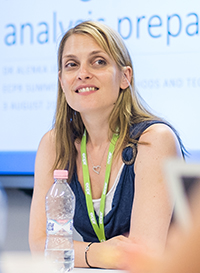
Alenka Jelen-Sanchez is a Lecturer and TPG Programme Director at the University of Stirling. She holds a PhD in Sociology-Communication Sciences from the University of Ljubljana, Slovenia. The arguments for her nomination for the Cora Maas Prize include long and dedicated service to the Methods School, repeated high quantitative scores in evaluations, and very positive qualitative responses.
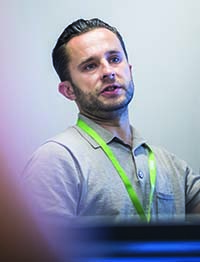
Zoltán Fazekas is a Postdoctoral Researcher at the Department of Political Science, University of Oslo. He earned his PhD in political science at the Department of Methods in the Social Sciences, University of Vienna, where he was an Early Stage Researcher in the Marie Curie Initial Training Network in Electoral Democracy, ELECDEM. Zoltán holds a BA in Economics, an MA in European Affairs and an MA in Political Science. His fields of interest are: comparative electoral behaviour, political psychology, and quantitative methods.

Marie-Hélène Paré is an eLearning consultant who lectures on program evaluation in the Master in Health Social Work at the Open University of Catalonia. She is also a freelance lecturer, consultant, and trainer in qualitative data analysis. Marie-Hélène was educated in Quebec, Beirut and Oxford where she read social work. She taught social work at St-Joseph University in Beirut, and has lectured on qualitative data analysis in more than forty universities and research centres worldwide. Her methodological interests lie in qualitative data analysis, qualitative evidence synthesis, emancipatory social sciences, indigenous epistemologies, and participatory methodologies.
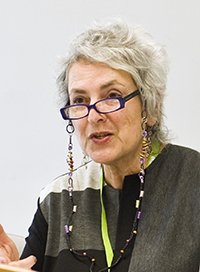
Dvora Yanow is a policy/political and organisational ethnographer and interpretive methodologist. Her research and teaching are shaped by an overall interest in the generation and communication of knowing and meaning in organisational and policy settings. Current research topics include practice studies, research regulation (ethics board) policies, built space/place analysis, science/technology museums and the idea of science, and state-created categories for race-ethnic identity, immigrant integration policies and citizen-making practices. Her most recent book, Interpretive Research Design: Concepts and Processes (Routledge 2012), with Peregrine Schwartz-Shea, is the first volume in their co-edited Routledge Series on Interpretive Methods; and the second edition of their co-edited Interpretation and Method: Empirical Research Methods and the Interpretive Turn has recently appeared (ME Sharpe 2013).
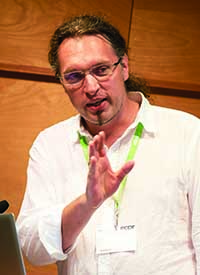
Jochen is researcher and lecturer in empirical methods of Social Sciences at University of Kaiserslautern where he teaches research methods and statistics for the social sciences. His main research interests in methodology are new developments and applications in structural equation modelling, response effects in surveys, and response latency measurement in computer-assisted surveys. He has published in the field of methodology as well as sociological theory (attitude-behaviour research, bounded rationality, framing) and substantial research (e.g. donation behaviour, environmental concern, ethnocentrism, political attitudes).

Dvora Yanow, Visiting Professor in Wageningen University’s Faculty of Social Sciences, Communication, Philosophy, and Technology Department, is a policy/political and organisational ethnographer and interpretive methodologist whose research and teaching are shaped by an overall interest in questions of knowing/learning and the communication of meaning in organisational and policy settings. Research topics include state-created categories for race-ethnic identity, immigrant integration policies and citizen-making practices, research regulation (IRB) policies, practice theory and the life cycle, science/technology museums and the idea of science, and built space/place analysis. Her most recent book is Interpretive Research Design: Concepts and Processes (Routledge 2012), with Peregrine Schwartz-Shea, with whom she co-edits the Routledge Series on Interpretive Methods. Constructing 'Race' and 'Ethnicity' in America: Category-making in Public Policy and Administration (ME Sharpe 2003) won the 2007 Herbert A. Simon Book Award from the American Political Science Association and the 2004 Best Book Award from the American Society for Public Administration.
Maja Pohar Perme is an assistant professor of statistics at the Institute for Biostatistics and Medical Informatics at the University of Ljubljana, Slovenia. Her research is focused on survival and event history analysis. She teaches both medical students as well as the students of statistics.
Maja Pohar Perme is an assistant professor of statistics at the Institute for Biostatistics and Medical Informatics at the University of Ljubljana, Slovenia. Her research is focused on survival and event history analysis. She teaches medical students as well as the students of statistics.